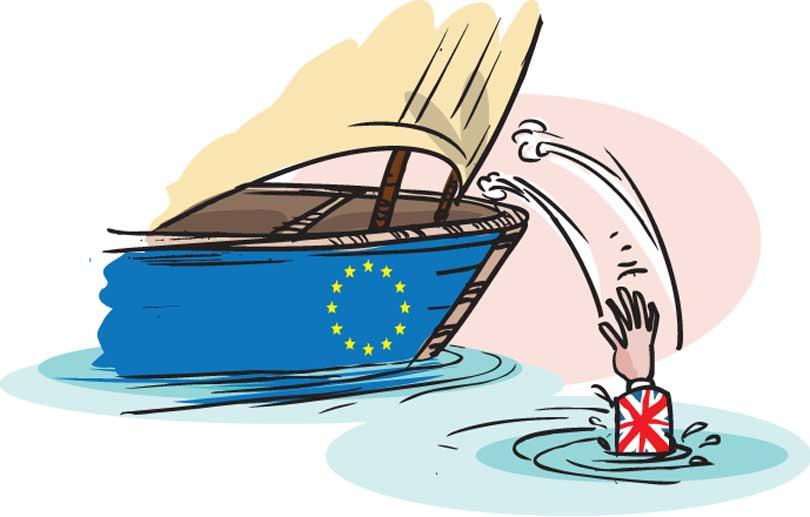Reply To:
Name - Reply Comment

Back in the late 1950s, Britain deliberately rejected European Union membership. Subsequently in the 1960s, Britain sought to join its ranks. However President de Gaulle of France rebuffed Britain’s application and finally Britain formally joined the European Union (EU) only on January 01, 1973.
At that time many argued, the British joined the EU as a means to halt the decline of its economy. The UK’s per capita GDP relative to the EU’s founding members’ declined steadily from 1945 to 1972. By 1950 the difference in per capita GDP between the UK and EU was 28%. Seven years later, when the Treaty of Rome was signed, it stood at 15% . However, it was relatively stable between 1973 and 2010.
But the decision to join the Union, even at the time of Britain’s entry into the European body was controversial, with Britian’s Labour Party initially seeking a renegotiation of membership. An Euro-barometer survey of EU citizens in 2009 showed that support for membership of the EU was lowest in the United Kingdom, and the decision of the electorate to vote in favour of British withdrawal from the EU, commonly referred to as “Brexit” (a short-form of the words “British” and “exit”); marks the first time in history that a member state decided to leave the European Union.
Britain’s Prime Minister David Camaron, who canvassed against leaving the EU resigned as Prime Minister and leader of the Conservative Party in the aftermath of the defeat when the Brexiteers emerged triumphant. Theresa May who took over after Cameron’s exit was an ‘accidental Prime Minister’, under whose term her Conservative Party has become ungovernable, its warring factions so far apart it was all but impossible to have them marching in a particular direction, at least when it came plotting out a course to leave Europe.
In the words of the ‘Guardian’ “...the Conservative Party has become ungovernable as May was poorly advised, and chose to take the bad advice when it chimed with her own prejudices and rejected wiser counsel. She entered negotiations in Brussels ill-prepared and was schooled in brutal realities of economics and diplomacy. “That was humiliating enough, but her failure to pass those lessons on to a national audience was unforgivable..
“If she did understand the cruel calculus of Brexit trade-offs, she did not confront her party with the truth. Nor did she use the amplifying power of her pulpit to shape public understanding of the issues. She preferred vacuity and dishonesty – “Brexit means Brexit”; “No deal is better than a bad deal”. She decommissioned the truth, afraid it might be used as a weapon against her...”
Unable to get her ‘Withdrawal Agreement’ passed by parliament, May was forced to resign her post of leader of the Conservative Party on June 7 and the election of a new leader of that party will be finalised by 22 July. The winning candidate will then take on the premiership of beleaguered Britain.
And so today Britain is in the midst of a Conservative Party leadership struggle where not only its membership, but a wide array of its general population are not aware of the consequences of leaving the EU without a deal. To make matters worse, the present Tory/Conservative government does not have a majority in parliament.
Commencing this week a majority of the card-carrying Conservative Party members who do not believe any dangers exist in a no deal Brexit, will be called to chose between the front-runner candidate Boris Johnson, and his rival Jeremy Hunt. They will demand more reckless pledges from the candidates. The new incoming Prime Minister will therefore confront the same parliamentary arithmetic that obstructed Mrs May’s efforts to achieve consensus.
The new leader will have no mandate from the country and no majority in the Britain’s House of Commons - its parliament. And so it looks likely that there could be an early general election or another referendum,’ even if the exact route is still unclear.
But nothing seems to be clear. However, what does seems to be clear is that Britain’s former colony -then Ceylon- and it’s former colonial master are together in the same boat named ‘Anarchy’. Both have ruling parties with no majority in parliament, and both seem to have no control of the direction in which they are drifting.